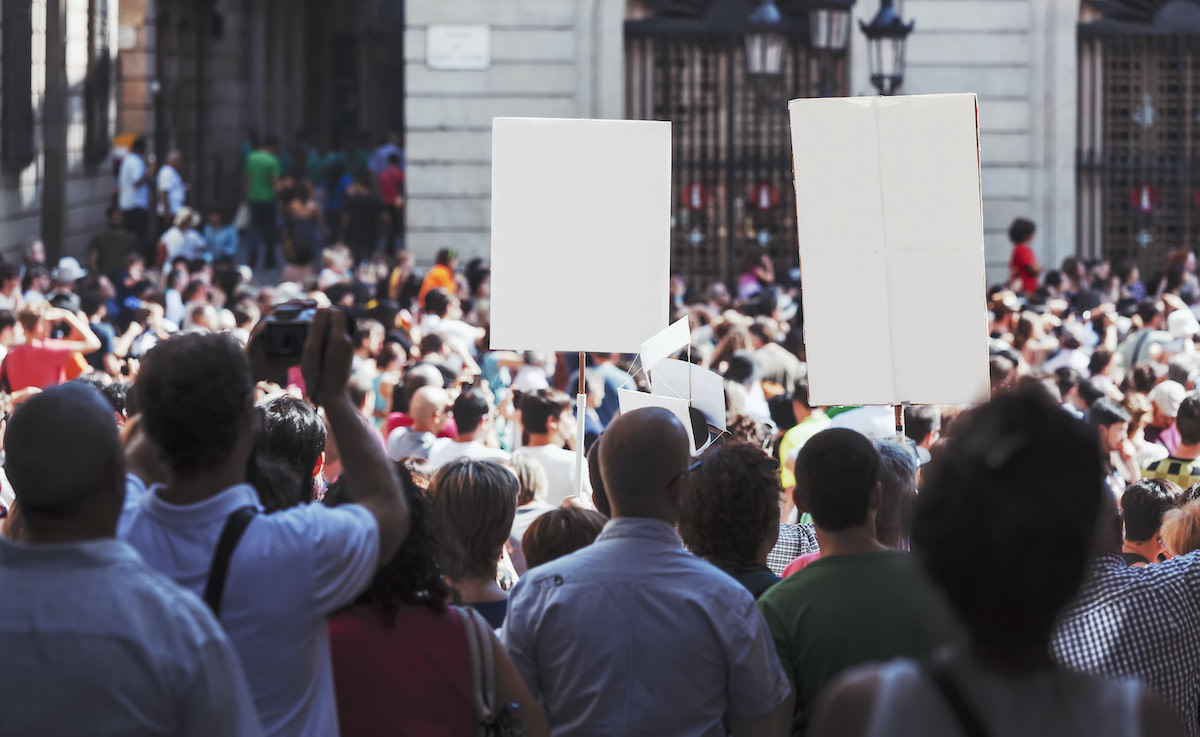Social Movements: Stages, Types and Examples
Written by MasterClass
Last updated: Aug 31, 2022 • 3 min read
People who want to change the rules or structure of their society lead initiatives called social movements.
Learn From the Best
What Is a Social Movement?
A social movement is an initiative, effort, or action that a group of people will carry out when they want to achieve a goal or enact change. A social movement can create social change, political change, or organizational change through organized or unorganized group action or activism, such as through civil disobedience, boycotts, rallies, or other collective actions or collective behaviors.
Many social movements align with political parties, such as a conservative movement, and there have been multiple instances of anti-war movements and women’s rights movements throughout history.
4 Stages of a Social Movement
Researchers Charles Tilly and Herbert Blumer ran social movement studies and led the forefront of social movement theory. They tracked social movements to break down how they begin, what happens at their peak, and how they end. Blumer and Tilly outlined the following stages a social movement may go through as it evolves:
- 1. Preliminary stage: People first discover an issue and look to leaders or constituencies for guidance.
- 2. Coalescence stage: Organization begins with mostly grassroots campaigns. People begin mobilizing and forming coalitions to publicize or begin advocacy on the topic.
- 3. Institutionalization stage: Fully organized at this stage, the social movement includes a large number of people. The movement may have paid members or staff, a marketing strategy, and other mobilization capabilities that expand beyond the initial grassroots efforts.
- 4. Decline stage: A social movement may decline for many reasons: Perhaps the advocates achieved their goal or got the legislation they wanted and no longer need to organize; perhaps they were unsuccessful, and followers have moved on to supporting other causes.
6 Types of Social Movements
With the globalization of technology and communication, social movements can organize with people from all over the world concerned with the same human rights and social issues. Political scientists and sociologists categorize these movement organizations and new social movements based on the type of change the group seeks.
- 1. Alternative movements: Alternative movements are less group-oriented and instead encourage changes to individual’s lives. This could include new types of diets or health practices.
- 2. Environmental movements: Environmental movements are typically concerned with protecting or preserving the environment. For example, there are many social movements surrounding climate change that seek to change laws and regulations to protect the environment, and many anti-nuclear movements are environmental movements.
- 3. Reform movements: A reform movement aims to change something about the social structures of society or the political systems in place. A reform movement may be an attempt to prevent change to society, revert to an old way of living, or create new laws or sanctions for a better system. Examples of reform movements include the Civil Rights Movement, apartheid segregation in South Africa, or the Black Lives Matter movement (BLM) in which Black people have sought changes to society that give them more freedom and equality. Another example is the women’s suffrage movement in which women sought voting rights.
- 4. Religious movements: Religious groups typically organize these efforts to encourage spiritual change or conversion in others.
- 5. Resistance movements: A resistance movement has the characterization of a reactionary movement in which people wish to undo a specific change made to their society. Examples of resistance movements include labor movements in which farm workers or industrial workers resist the wages and conditions that corporations imposed on them.
- 6. Revolutionary movements: A revolutionary movement exists to change almost all aspects of a current society through total revolt.
Want to Make an Impact on Your Community?
You don’t need a big platform to make a difference. Gain access to the MasterClass Annual Membership for exclusive lessons from Malala Yousafzai and learn how your small actions can help build a movement.
